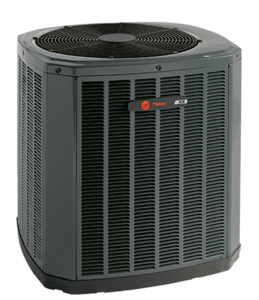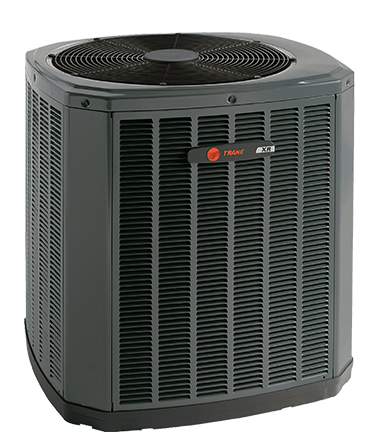Most of us don’t give our heating systems a second thought until they stop working. However, with appropriate maintenance and knowledge of your system, it can keep your family happy and comfortable for many more winters.
Learning more about how to maintain your heating system working properly is one of the greatest methods to do so. Plus, heating systems are incredible technological marvels that can surprise you when you learn more about them. So, here are some of the most interesting facts about your heating system that you probably didn’t know about.

1. Romans used heating system first
The Romans were the first to use a hypocaust, a type of heating system. It functioned by transferring furnace heat through the floors and walls of the homes. Unfortunately, this advanced technology was only available to the affluent and upper-class Romans who were rich. Only stone or brick homes could employ it, and it was extremely risky due to the risk of fire or suffocation. Thankfully, today’s furnaces are safer to operate in the house. Monks who followed the Romans used furnaces to heat flowing rivers to keep their monasteries warm.
2. Furnace can last for 15 to 40 years
The lifespan of your furnace might range from 15 to 40 years, depending on the sort of heating system you have and how well you maintain it. At the very least, it’ll be one system in your home that you won’t have to worry about often updating; just make sure you receive the appropriate maintenance regularly for your heating system.
If you’re thinking of replacing your old furnace, make sure to consider the new unit’s lifespan as well as the annual savings. Although high-efficiency units might not last as long as traditional units, they can save you money on power bills.
3. Home heaters consume a lot of energy
One of your home’s largest energy consumers is the heating system. Home heaters in Texas often consume 50-60% of a home’s overall energy consumption. Even the most energy-efficient house heaters consume a significant amount of power. Furthermore, if your home heating system is not effectively maintained, it might consume even more energy. As a result, having your heating system maintained by us is always a good idea.
4. Home heater can be eco-friendly, too
Home heaters, as mentioned above, are one of your home’s top energy consumers, but there is one form of home heater that isn’t: geothermal heaters. A geothermal heater uses the ground’s geothermal electricity to keep your home warm, making it one of the most environmentally friendly heating systems available.
5. Furnaces are the most common heat source in American homes
Furnaces heat a building by circulating conditioned air through ducts in the floor, walls, and ceiling. They can run on gas, electricity, oil, or a combination of these fuels; natural gas furnaces are the most popular because they’re the most cost-effective.
6. Cranking your thermostat won’t heat your home faster
One of the most common home heating myths is that if you turn your thermostat up, your house will heat up quicker. The truth is that no matter how much you turn the thermostat, your home will continue to warm at a consistent rate. When you raise the thermostat, your furnace has to work more, which reduces its efficiency.
7. The government regulates the installation of your furnace
This applies to both the state and federal governments. While furnace safety has improved dramatically since the ancient Romans used them, there is still an element of risk. If not installed or maintained correctly, it can lead to a variety of issues, including a fire caused by a defective burner.
This is why, rather than attempting to install a new furnace yourself, you should always hire an experienced professional. Not only can the unit’s lifespan be shortened, but it might also cause unnecessary complications throughout its use.
8. The AFUE Rating
Annual fuel utilization efficiency (AFUE) is a long-winded way of describing energy to heat ratio. The greater the AFUE rating, the more natural gas heat is extracted and enjoyed by your household.
So, when you’re looking for a new furnace system and see AFUE rates above 90, consider them as a ratio. An AFUE of 90 indicates that 90% of the gas burnt is converted to heat that can be utilized by your home. The AFUE ratings of furnaces improve as they become more efficient, resulting in lower heating bills and increased comfort. Isn’t it cool?
9. Maintenance Is Necessary
Our industry has a widespread misperception that maintenance is an optional service. Too many individuals purchase new furnaces and then browse about for a maintenance plan for a few years before ever having their system serviced. Maintenance is necessary not just to avoid repairs and maintain high-efficiency levels, but it is also necessary for your system’s safety.
10. How Efficient Is A Boiler?
Boiler systems can be around 90% efficient, which is somewhat less than gas-fired furnaces, which can be over 95% efficient. Boilers, on the other hand, are incredibly efficient since they allow you to manage temperatures from room to room! This implies that rather than paying to have your entire house heated at the same temperature, you may keep other areas cooler and only keep your bedroom warm at night.
It can be difficult to stay comfortable in both the summer and the winter. Fortunately, we have modern, efficient environmental systems in place, such as the most up-to-date high-efficiency boilers. And as long as they perform their job, no matter how cold it gets, we’ll be fine.
Why Is It Never a Good Idea to Wait for Repairs?
We understand how inconvenient it can be to schedule professional service for your heater every year. But, believe us when we say that having to maintain your system regularly is significantly more inconvenient. Worse, the longer you try to go without maintenance, the more expensive and frequent repairs will become. Instead, scheduling heating maintenance on an annual basis is easier and more cost-effective.
Reasons Why Maintenance Is Important?
Let’s take a closer look at why yearly heater maintenance is so crucial. Here are four reasons why you should never neglect a tune-up.
1. Maintenance reduces repair needs
We touched on it briefly earlier, but let us elaborate. Small faults, such as a dirty filter or a loose screw, are addressed by maintenance services while they are still minor. This prevents them from escalating into full-fledged repair difficulties, which could result in more damage to your heater.
2. Maintenance keeps your home warm and safe
Annual tune-ups, whether you have a furnace or a heat pump, can guarantee that your heater runs safely and efficiently while lowering the risk of problems.
3. Maintenance improves energy efficiency
When you plan maintenance once a year, you’ll avoid the regular loss in energy efficiency that your heater would experience if you didn’t. This means that instead of losing a proportion of its efficiency, your system maintains a higher degree of energy efficiency.
4. Maintenance helps keep energy bills low
Who doesn’t want to save money on their bills? With fewer niggles in your heating system obstructing the heating process and pushing your system to work harder, your heater won’t need to spend as much energy to complete the task. This implies there will be no unexpected increases in your monthly expenses. Instead, you may look forward to a bill that is predictable and cheap.
When to get your heating system serviced?
When your heater and air conditioner are working fine, it’s easy to overlook them, but once something breaks, you’ll certainly regret not keeping up with maintenance. After all, if something goes wrong, you can end up with a repair that takes more time and costs more than routine maintenance. As the weather begins to cool, fall is the time to inspect your heating system.
The best time to think about performing your heating maintenance is before you want to utilize it. Don’t wait until the first cold morning to realize you haven’t had your heating system serviced yet. Preventative maintenance can save money on repairs for larger components by catching issues before they become serious during normal maintenance.
While your system may appear to be in good working order, a technician may discover a problem that would only worsen if left unattended. Experts can detect and solve faults straight immediately with preventative maintenance.
Fixing minor issues can keep your heating system functioning efficiently and prevent future breakdowns. You might save thousands of dollars in repair costs and electricity with appropriate heating system maintenance.



0 Comments